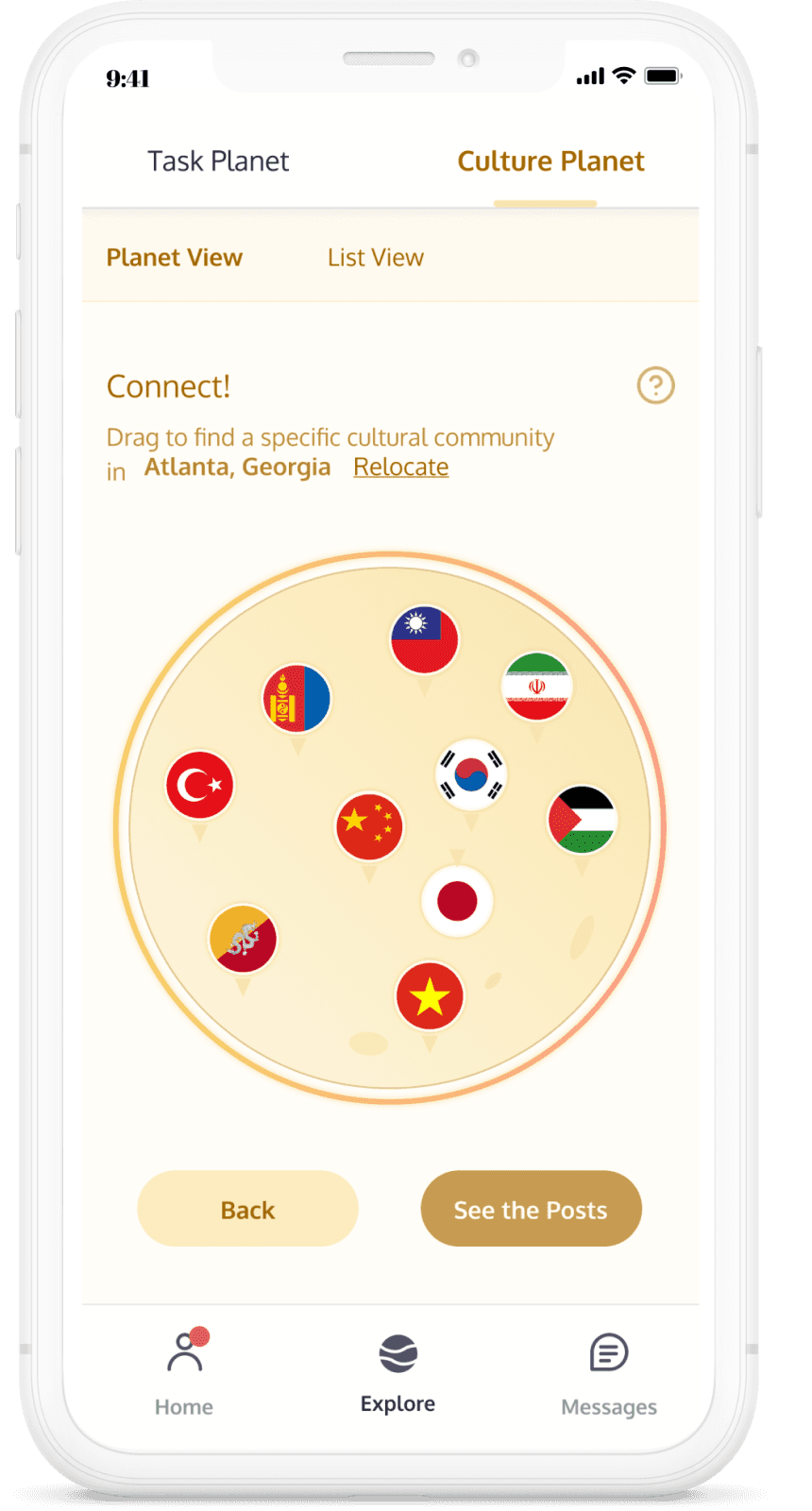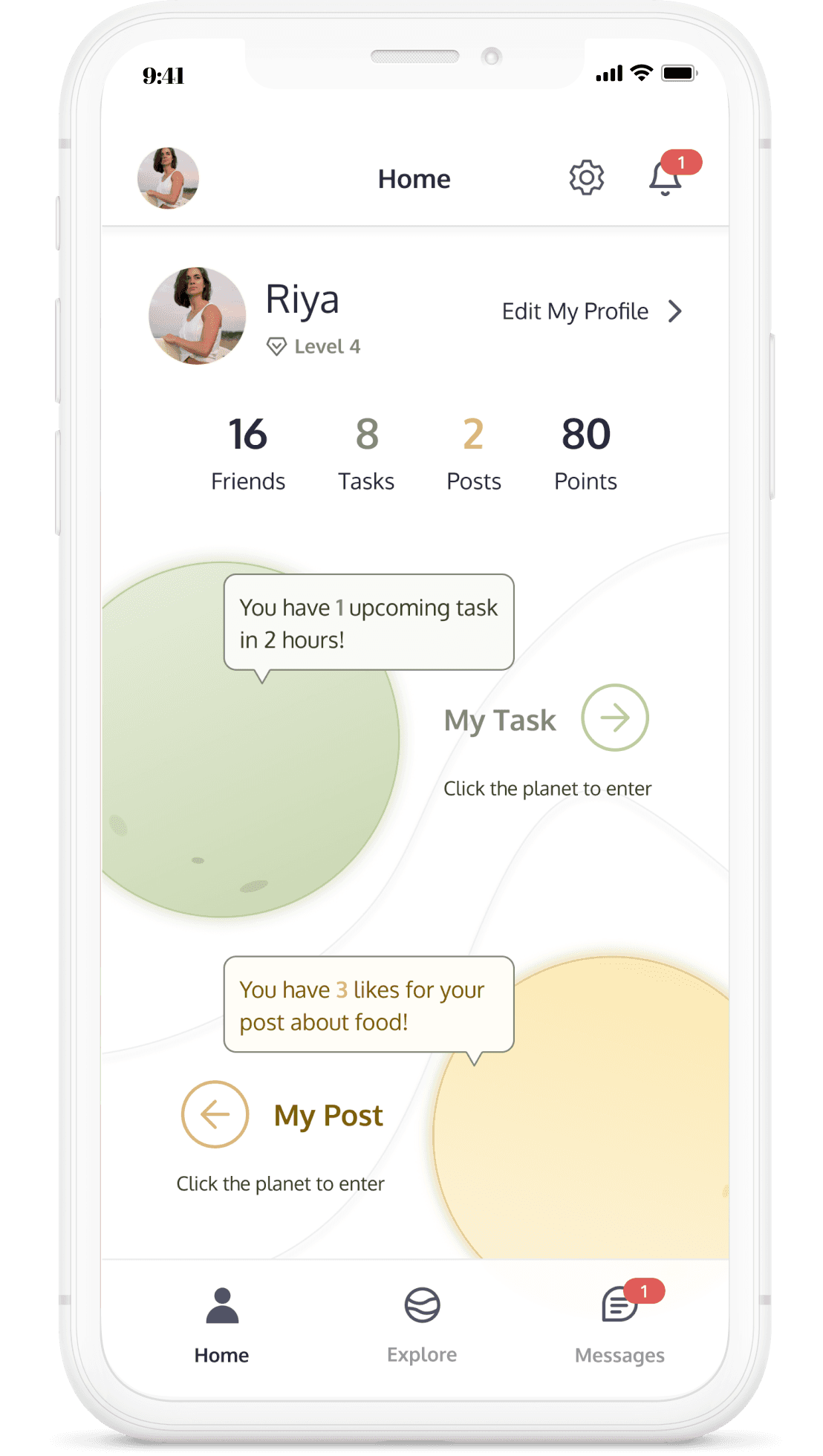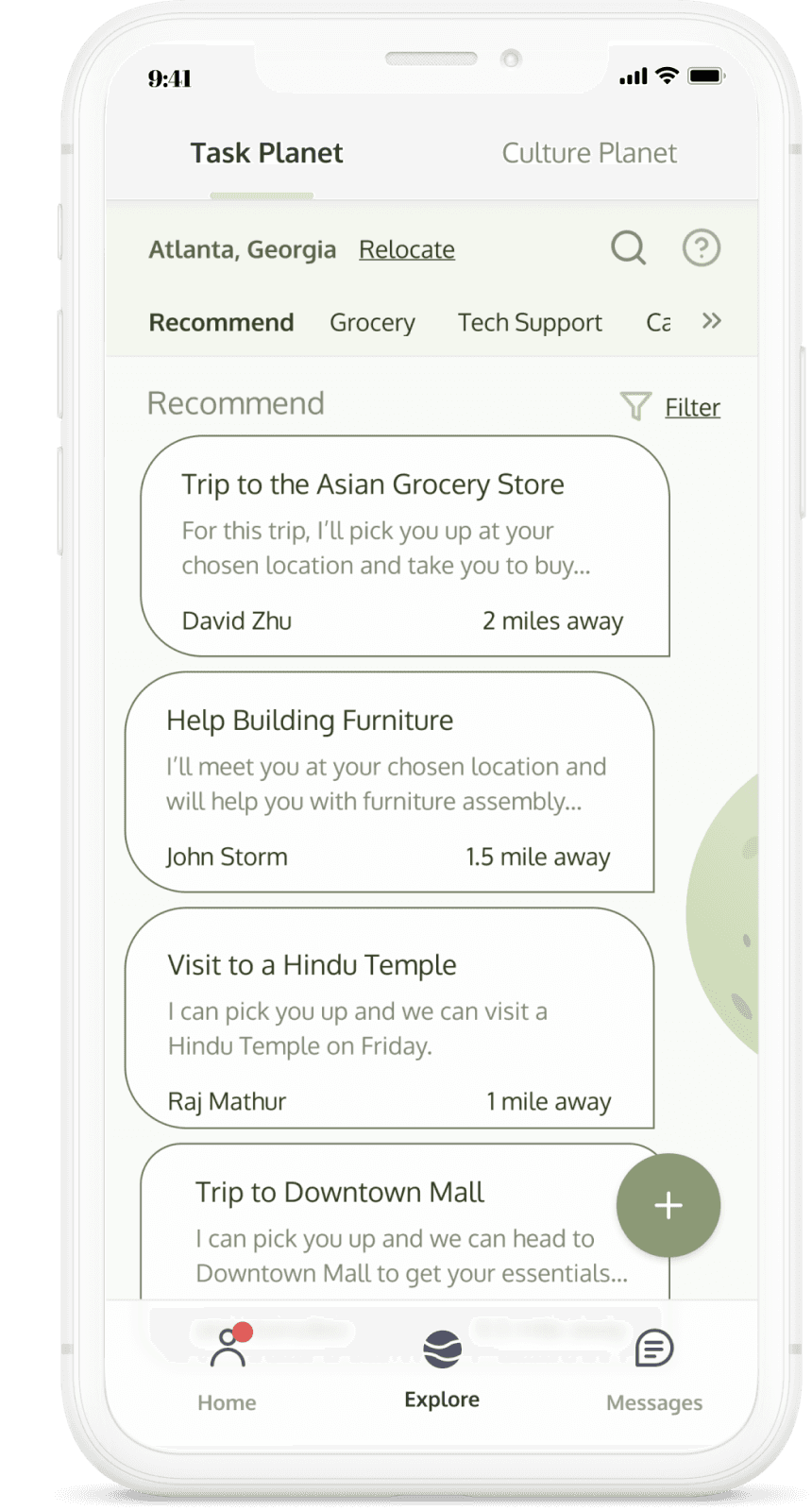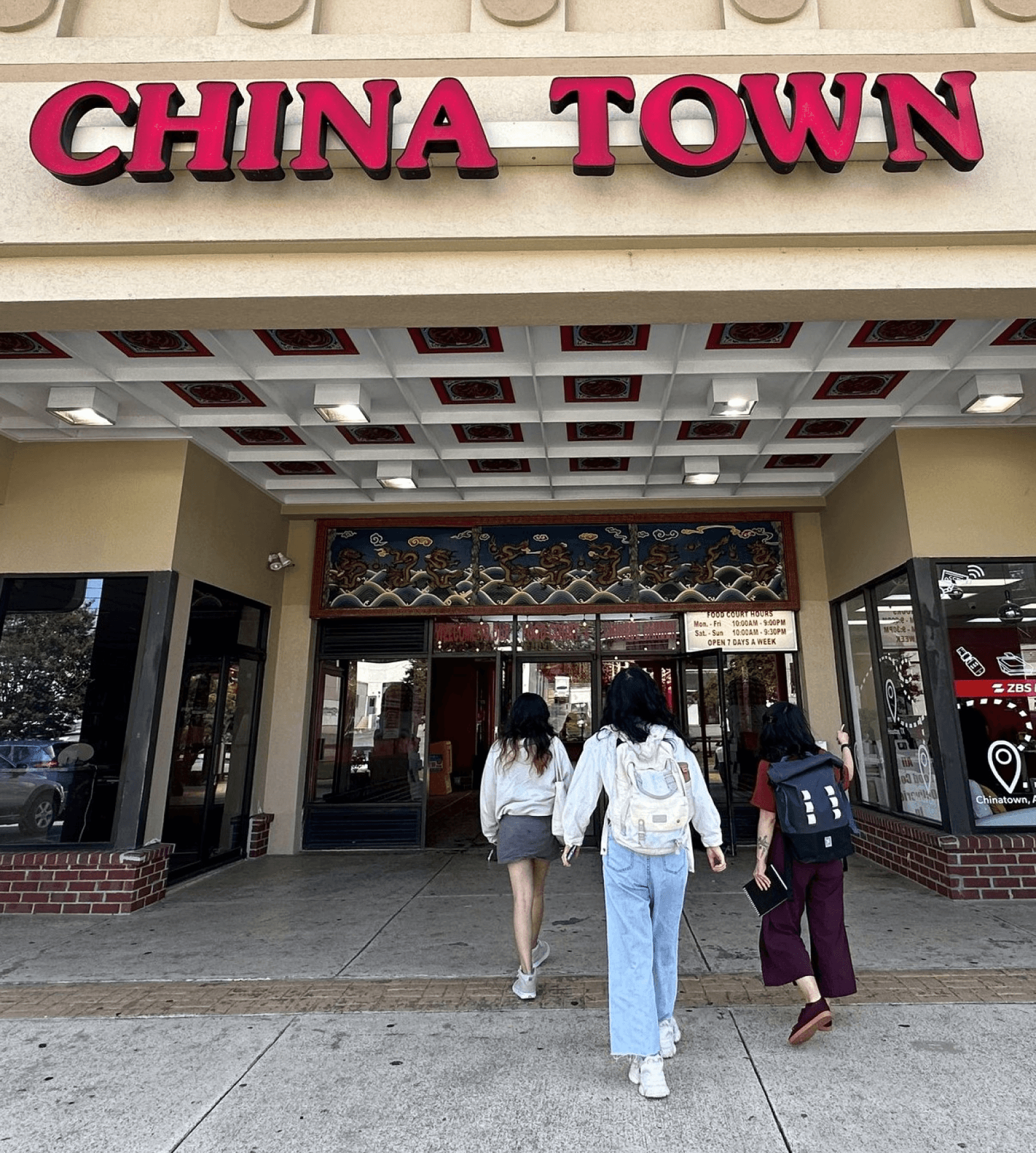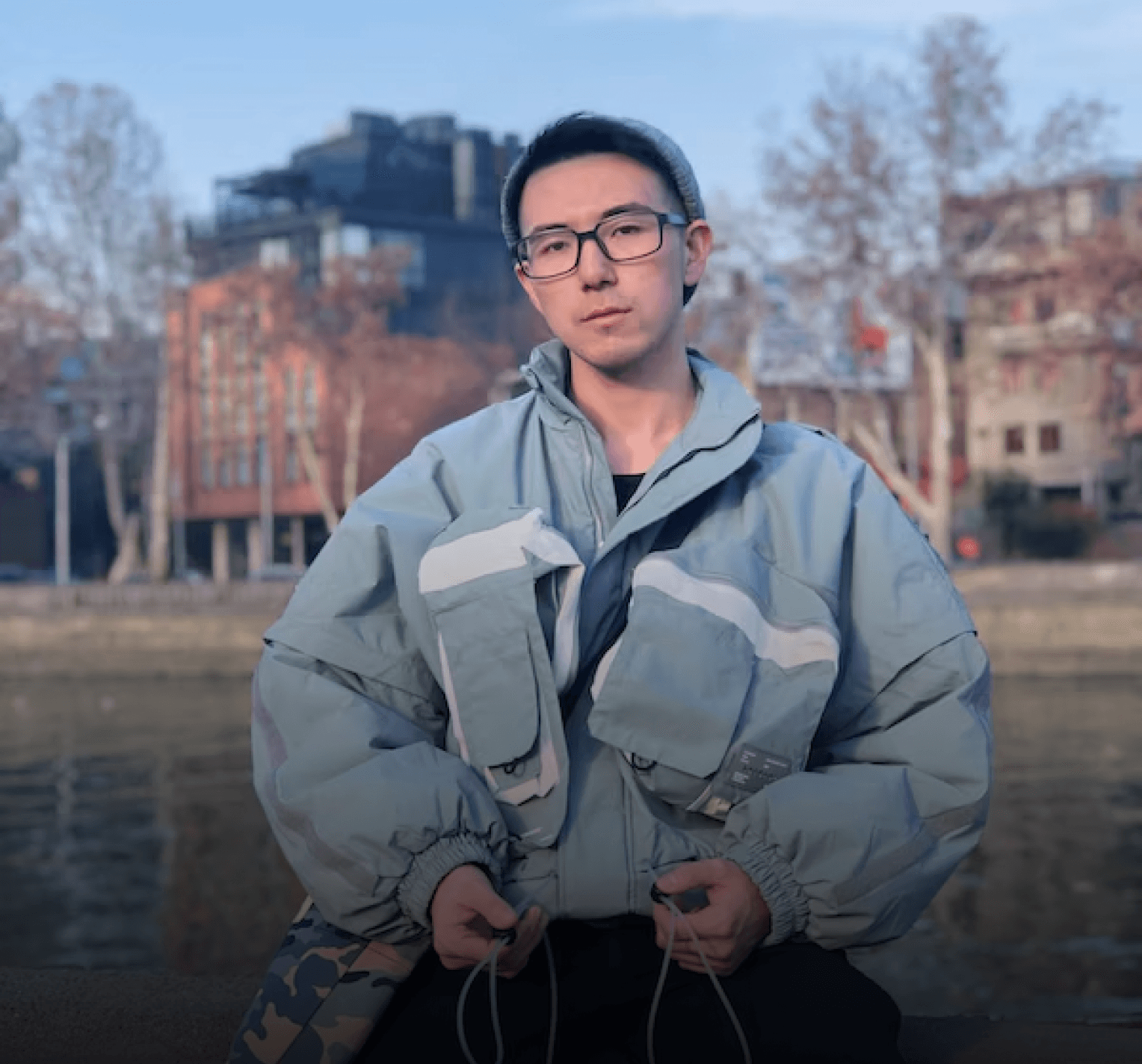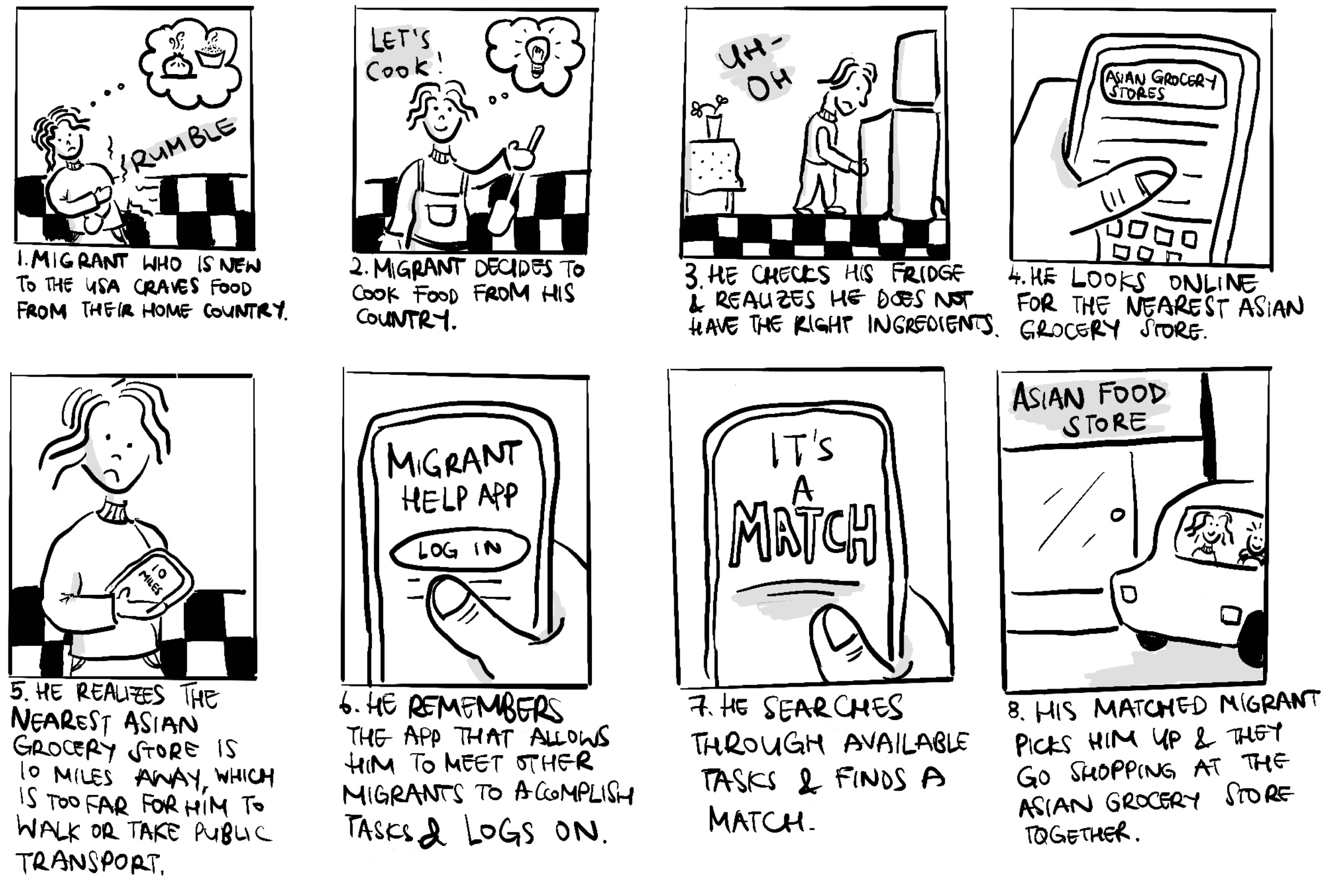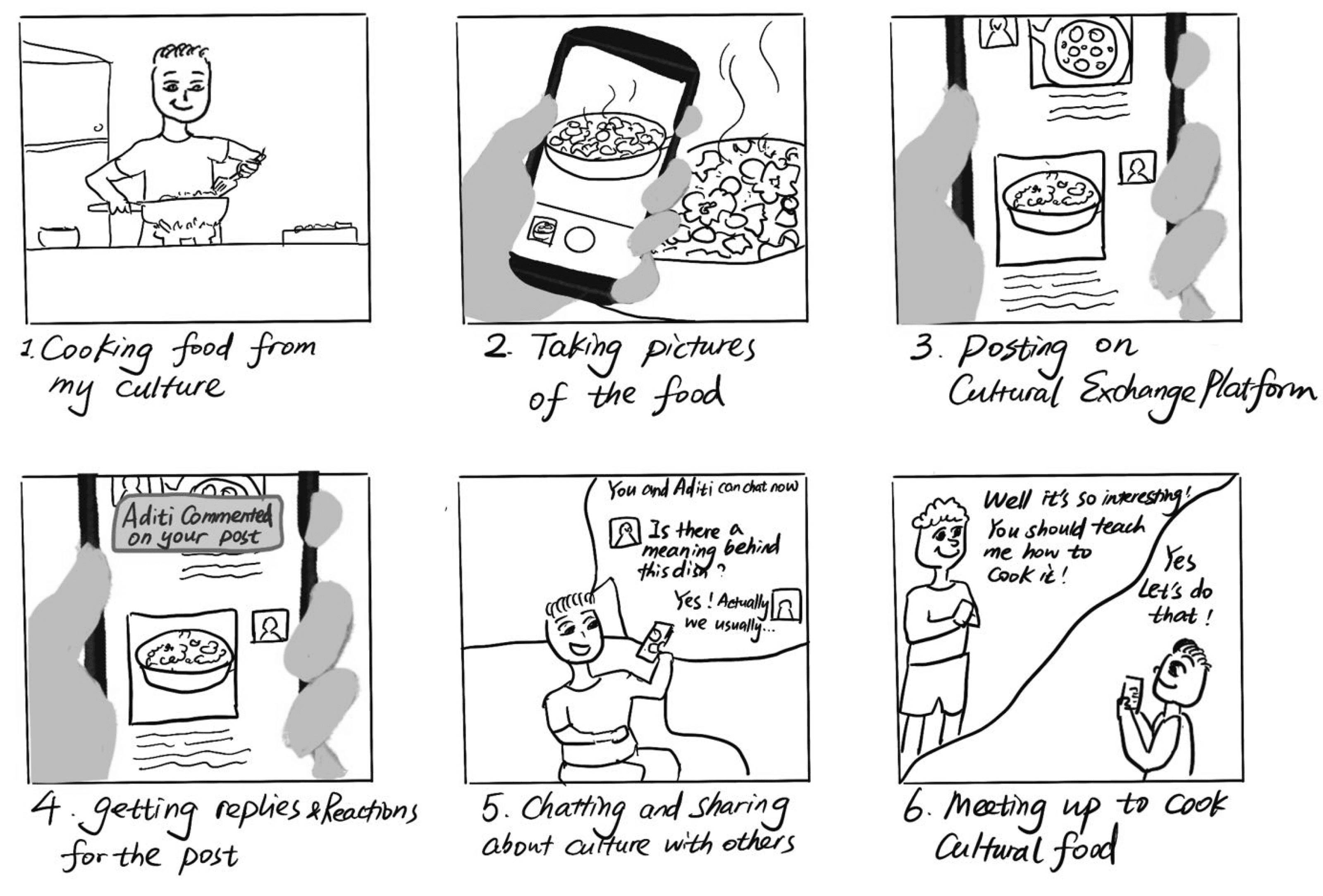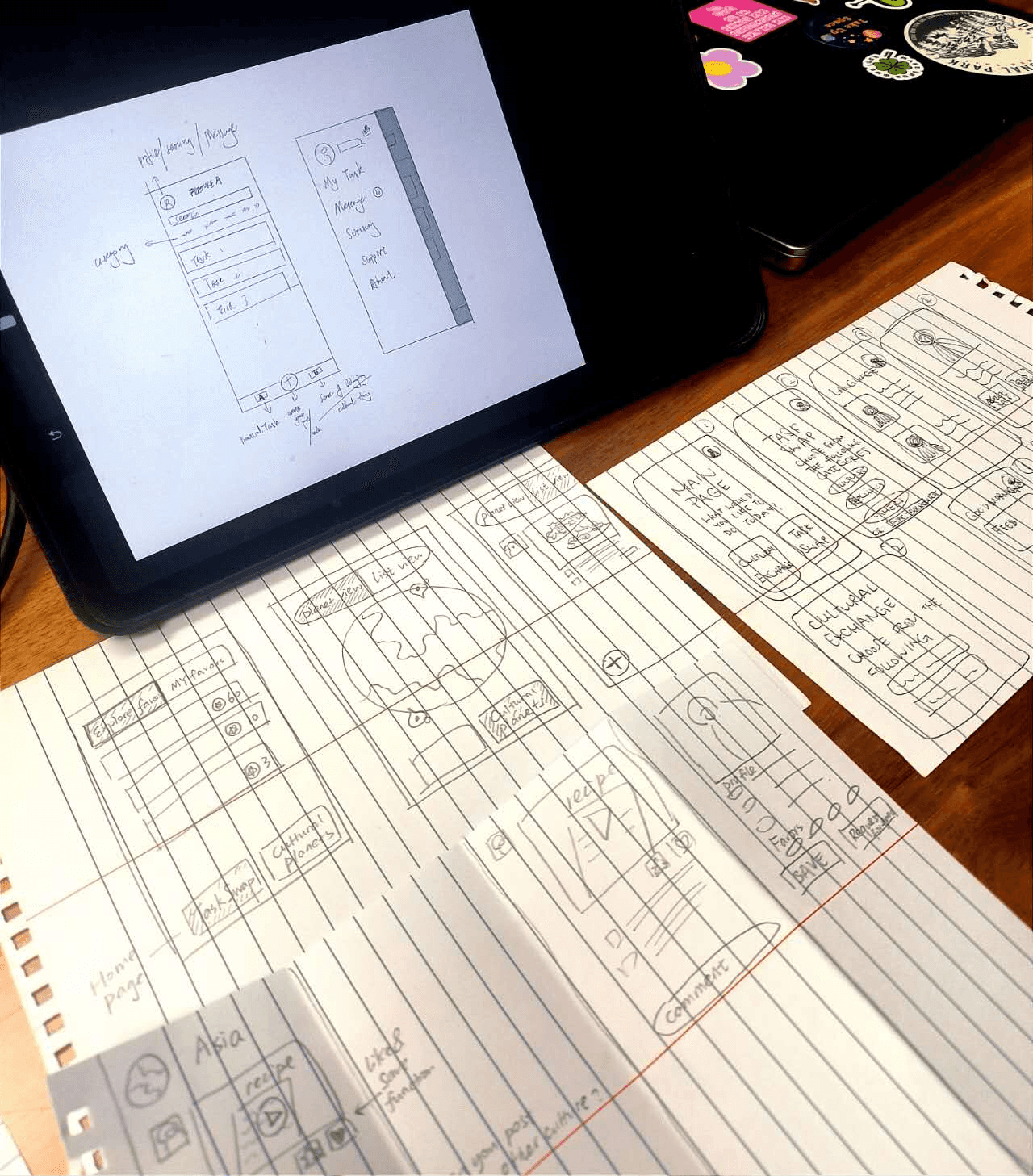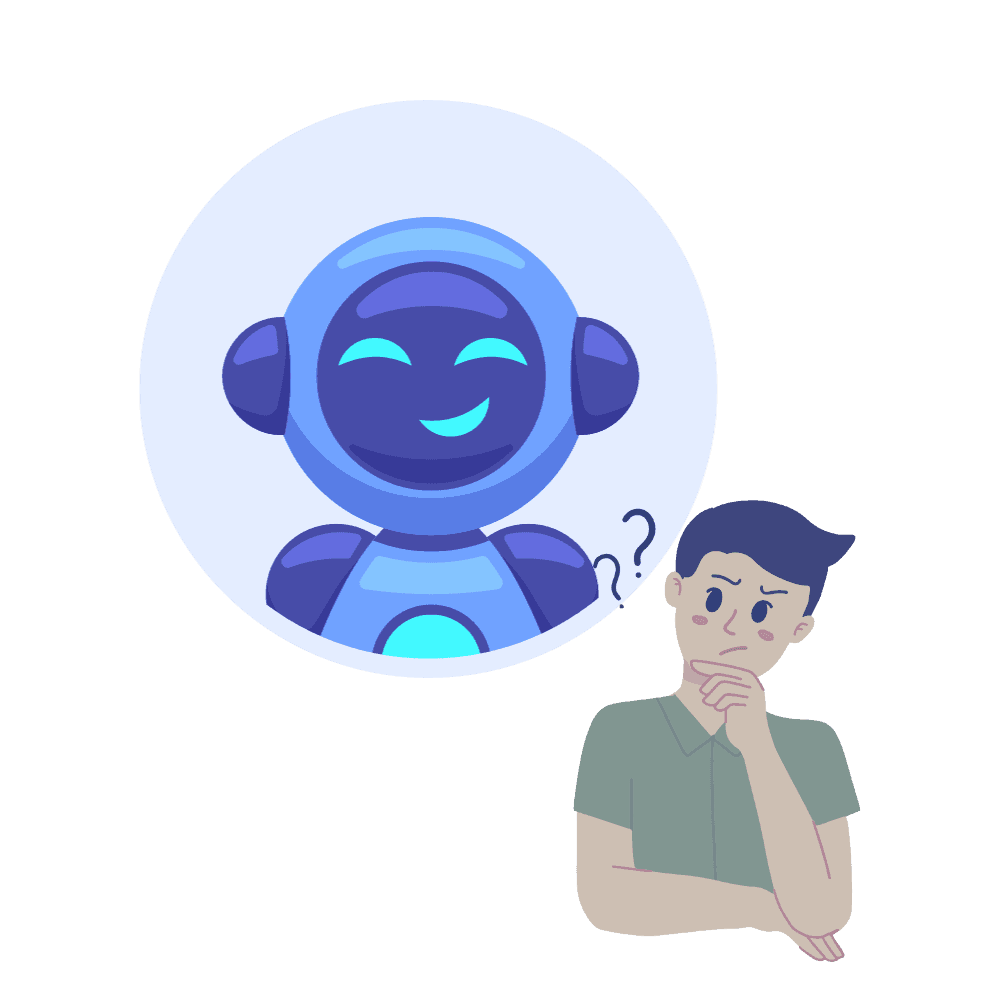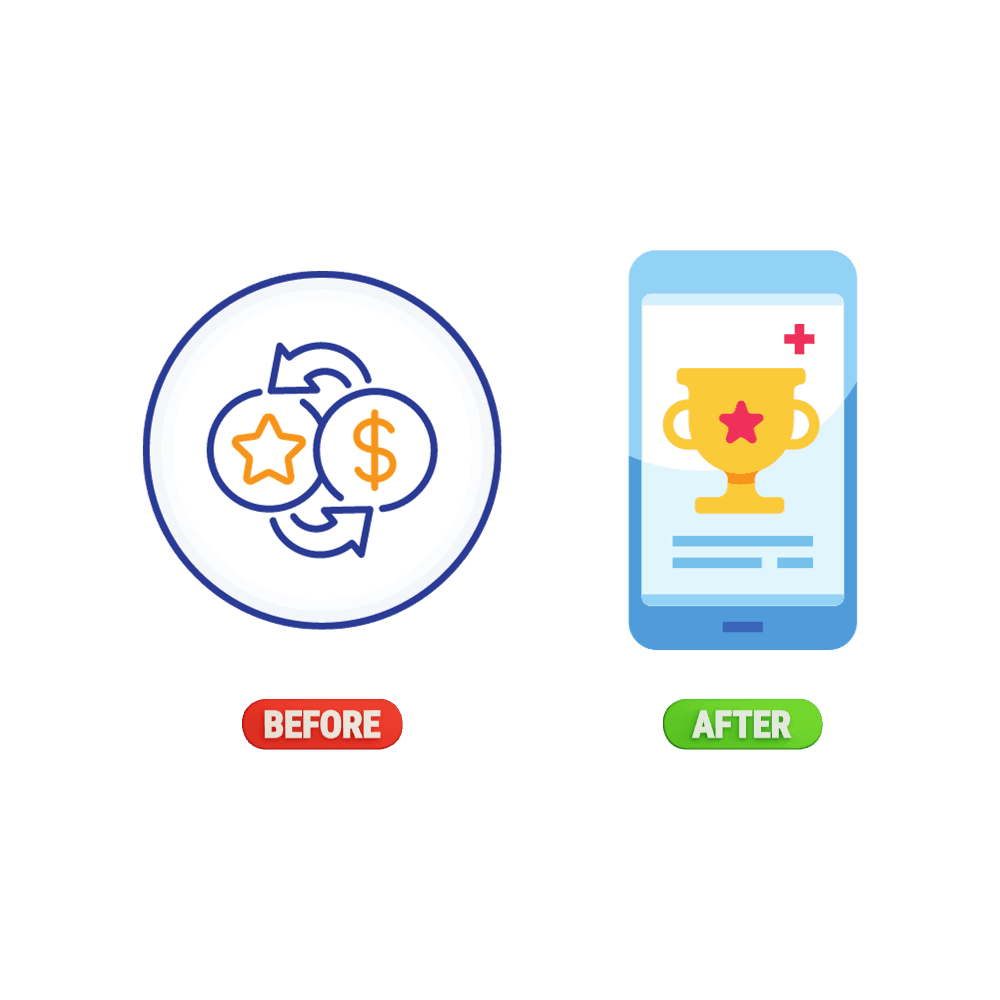
Here’s the 1 minute TL;DR version
What did I do?
I led the creation of an interactive app connecting and assisting new migrants in the USA. The platform facilitates task swapping among migrants and fostering cultural exchange through social media functions for seamless connections and meaningful friendships.
Why was it done?
Migrant population in the USA is huge, and moving to a new country is challenging both practically and emotionally. We want to create a safe place for migrants to ask for and receive help.
What did I learn?
The significance of actively engaging target users at every product stage and managing diverse user opinions effectively.
“How can I build these huge furnitures alone…”
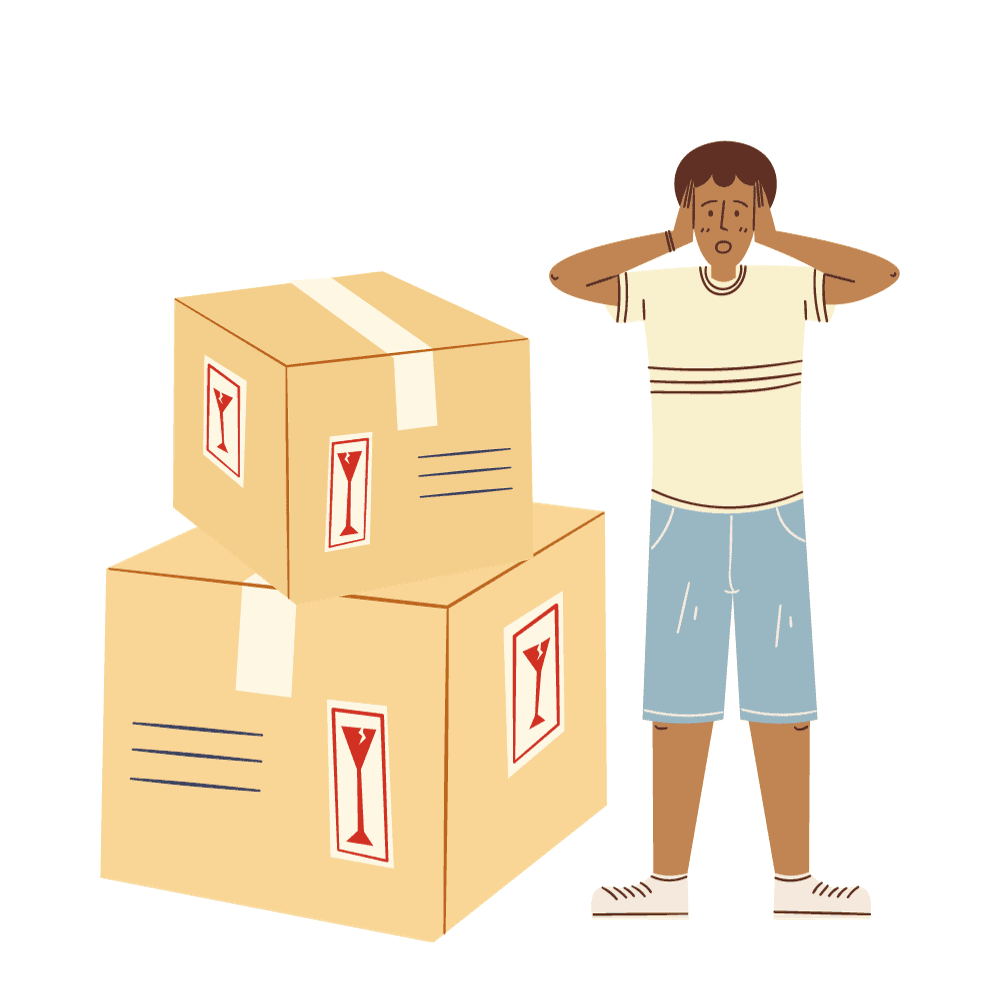

“I want to make my home food so badly, but that supermarket is too far away…”
“How can I make friends here…”
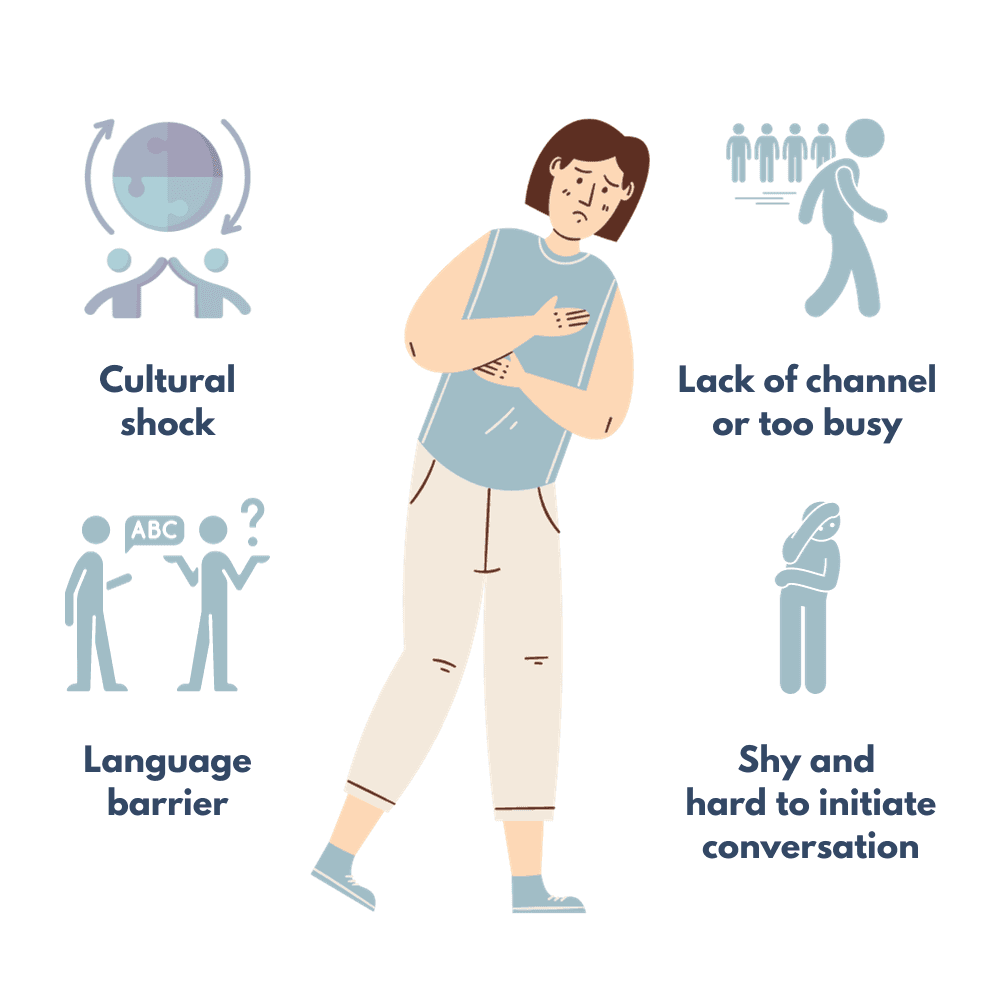
Solutions we designed
Fostering a Community of Mutual Assistance
Browse available tasks to book the help you need. You can also create tasks to offer practical help for others!

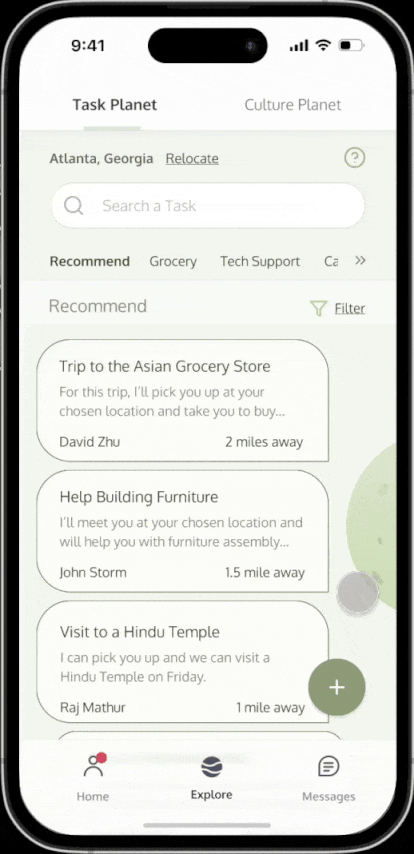
Connecting Cultures, Creating Friendships
Browse posts to learn about diverse cultures or share your own experiences. Whether you're interested in discovering similarities or embracing differences, this is your bridge to forming meaningful connections with people from various backgrounds.

Research
Survey
Interview
Affinity Mapping
Personas
Design
SCAMPER ideation
Wireframes
User feedback
Hi-fi Prototype
Evaluate
Usability Testing
Design Iterations
Survey
We sent out a survey and got 165 responses.

36
Different Countries

















































49 Indian





















21 Chinese










10 South African
Close friends and a cultural community were the most important.
We found that the top 2 most important things when moving to a new country are close friends and cultural community. And most of our participants desired both practical and emotional support
Semi-structured Interviews
Randomly chosen 6 participants from our survey
These 6 migrants were in the age group 18-55. To create the questions for the interview, we referenced our old set of research questions as well as insights from our survey. We ensured that we had a rationale for each question so as to optimise the questions asked.
Desire for Similar Experiences
Our participants wished to make friends with people who share similar experiences, including cultural, educational, and interest-related commonalities. They also express a desire to make friends with people from other cultures, indicating a balanced interest in diverse and like-minded friendships.
Challenges in Adjustment
Our participants faced various challenges when adjusting to life in the USA. This includes difficulties in logistics, education, employment, and language. This in turn resulted in emotional difficulties.
Our participants expressed a desire to engage in cultural exchanges, especially through food and other means. This indicates an interest in sharing their own culture and learning about others.
Origin
China
English Level
Basic
Personality
Introverted
Pain Points
He tends to be shy when it comes to initiating conversations and actively making friends.
He lacks of channels to form close friendships.
He struggles to comprehend what American classmates are discussing, leading to a feeling of exclusion.
Needs
To feel confident in reaching out people.
To find communities that he feels comfortable in.
To make friends with a similar cultural background.
In need of Emotional Support
Origin
India
English Level
Fluent
Personality
Extroverted
Pain Points
She is uncertain about where to start when it comes to addressing essential needs such as finding accommodation, booking flights, and managing visa-related matters.
She experiences frustration when confronted with unfamiliar tasks following her relocation.
Needs
To establish meaningful and lasting connections with others.
To seek readily available guidance whenever she encounters unfamiliar daily tasks.
In need of Physical Support

to find other migrants who are willing to help them with tasks. Available tasks will be published on the platform and migrants in need of help will be able to scroll through these tasks to find what matches their needs.
Idea 2: Migrant Culture Exchange
to share and exchange cultures through posting about their cultures, and potentially participate in cultural events and make friends in the process
Sketch ideas
Collaborative Design Exploration
We each sketched out a rough drawing of what they imagined the application to look like, including layout, features, and design. We then discussed it as a team to determine features and layouts that we felt best fulfilled the design requirements.
Wireframing ideas
Task Planet
Browse available tasks to book the help you need. You can also create tasks to offer practical help for others! There is an in-app currency system to not only encourages active participation but also reinforces the sense of community and reciprocity within the platform.
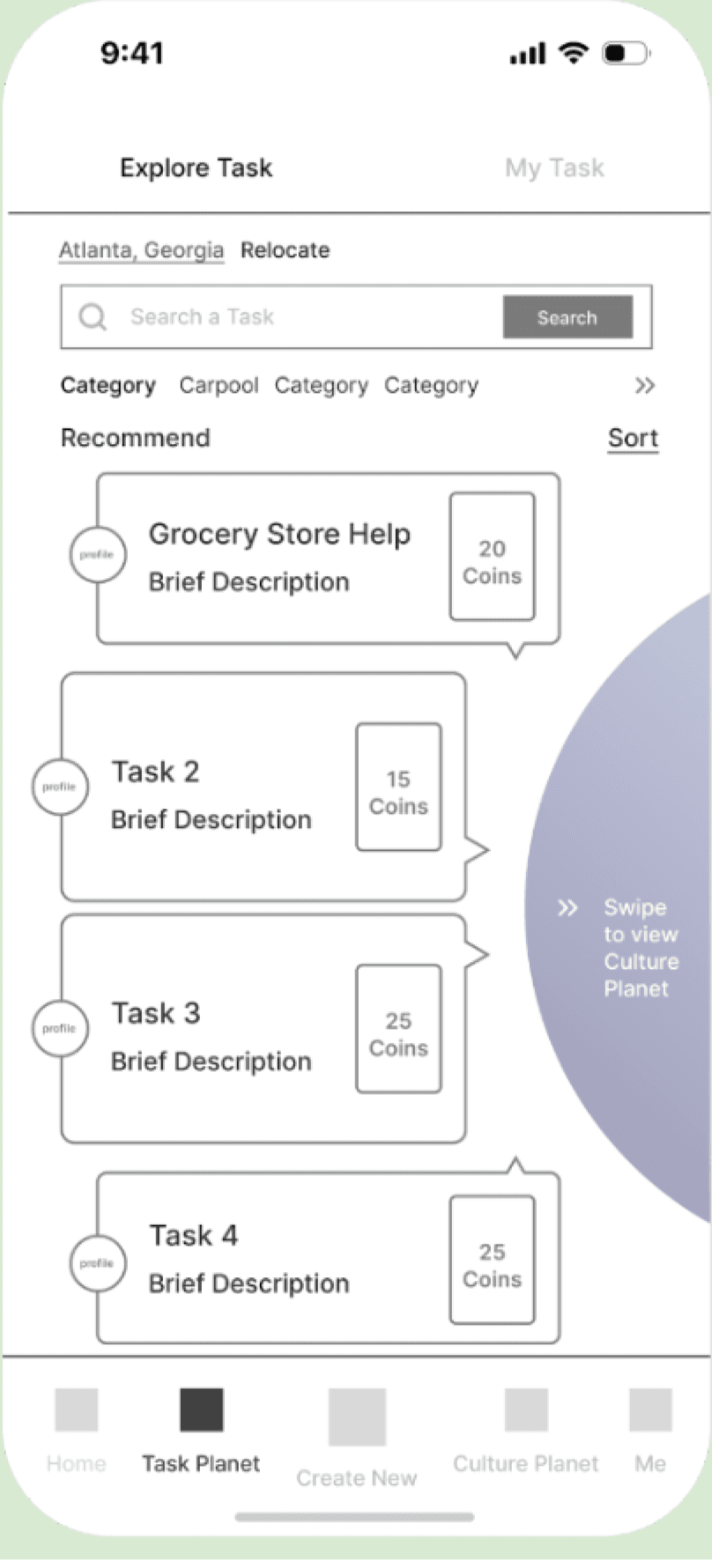
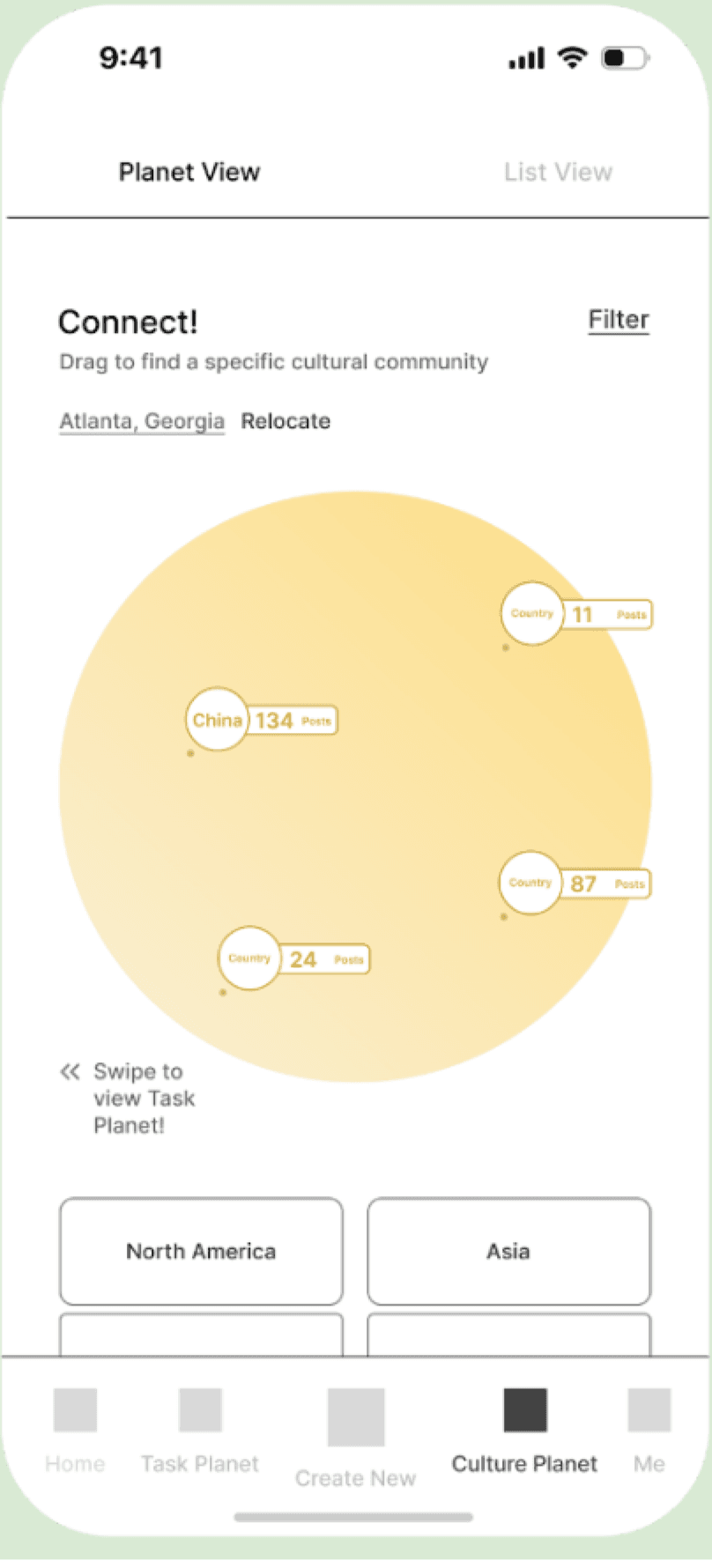
Cultural Planet
Browse posts to learn about diverse cultures or share your own experiences. Whether you're interested in discovering similarities or embracing differences, this is your bridge to forming meaningful connections with people from various backgrounds.
My Profile
Allow migrants to anonymize their profile photo by changing their avatar to an animal. Users are able to reveal their original profile photos to their friends after adding them.
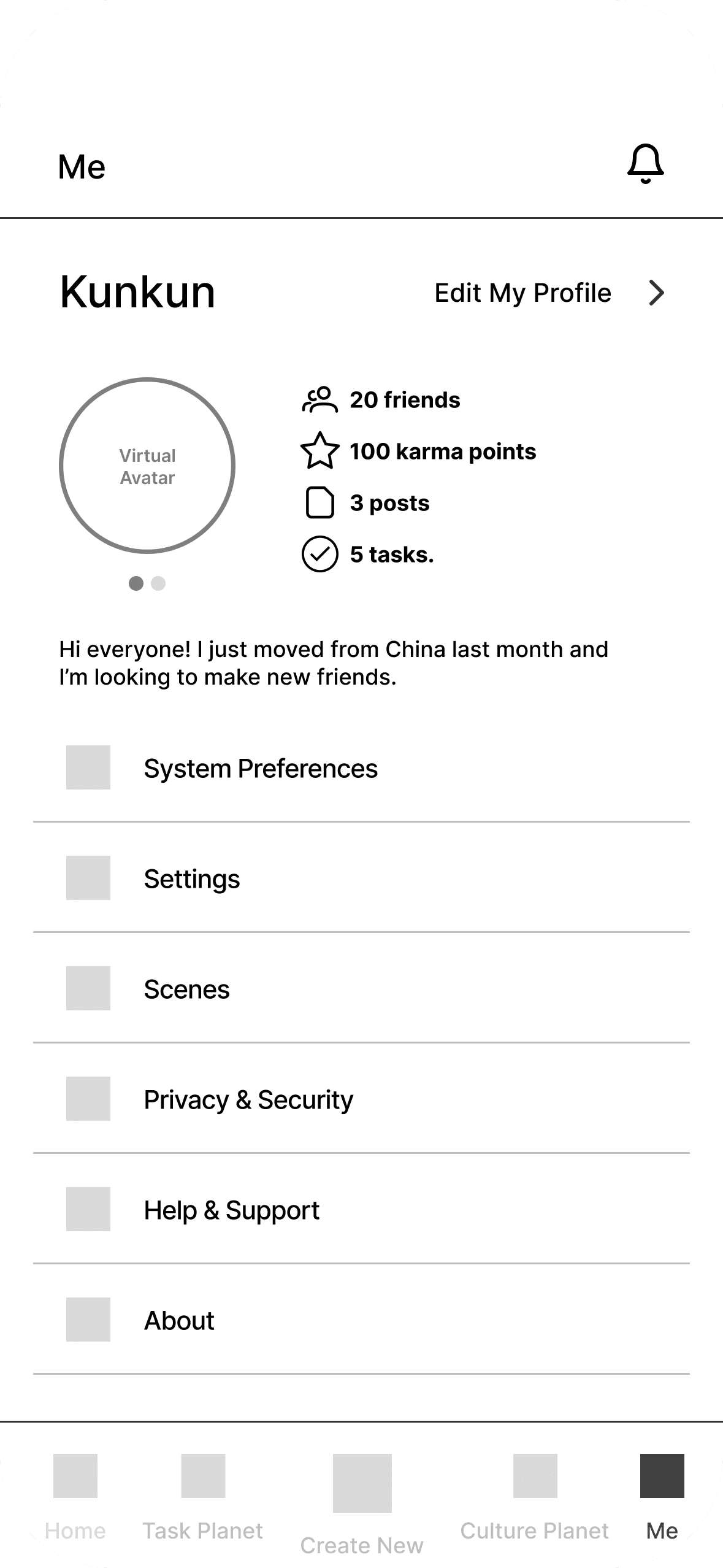


x4
HCI experts
focus session

x2
Migrant individual feedback session
What we found
Confusion between two planets
The purpose of 'Task Planet' and 'Cultural Planet' requires clearer definitions
Solution: Add onboarding
An onboarding process on the main pages helps orient users better
Lack of trust for virtual avatars
Users strongly prefer real profile pictures for trust and better connections, especially among migrants seeking companionship.
Solution: Use real photos with reporting mechanisms
A safer environment could be achieved through features like temporary blocking, reporting mechanisms, and community guidelines. Allowing profile photo omission for privacy is also crucial.
Anxiety about the point system
Some users expressed how this system might discourage them from using the app. It’s also hard for migrants who have stayed in the USA for a while to continue offering help to others.
Solution: Use points and levels as a motivator
Instead of making the points as a transaction currency for exchanging favors, we use it as a motivator that only encourages user, introducing levels based on points earned, granting 'experts' access to special events and physical awards.
Final Solution

Final Evaluations
To iterate the prototype and make sure all design is user-centered, we started gathering more feedback by conducting usability testing.
Participants were given three task scenarios:

search
Browsing posts on Culture Planet.

tasks
Browsing and booking an available task on Task Planet.

calendar-plus
Creating a task on Task Planet.
What we found...
Potential of “fake complete” from helper’s end to get reward
Current design is to have the helper click on complete after the task completion. Users are concerned if a helper doesn’t show up and marks the task complete just to get the reward.
Solution: Require “complete” from both ends
Allow users who receive help to also mark complete tasks or report no-show to reach a full completion. To solve the problem that some users might forget about marking after receiving help, it’s marked complete after three days of no-reaction from both sides.
times
Old
Trip to the Asian Grocery Store
David Zhu
Completed
Nov
8
2:00 pm
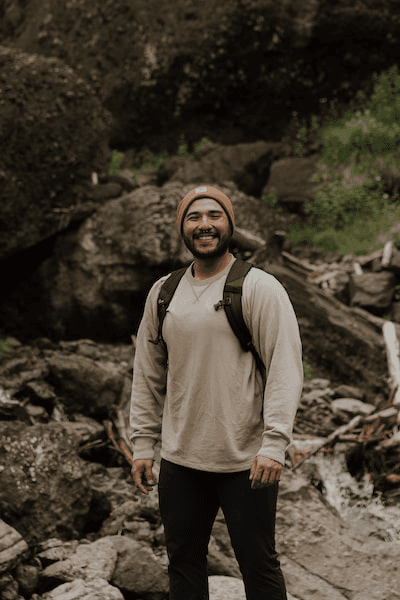
check
New
8 Nov
Trip to the Asian Grocery Store
2:00 pm
Helper: David Zhu
Mark Complete
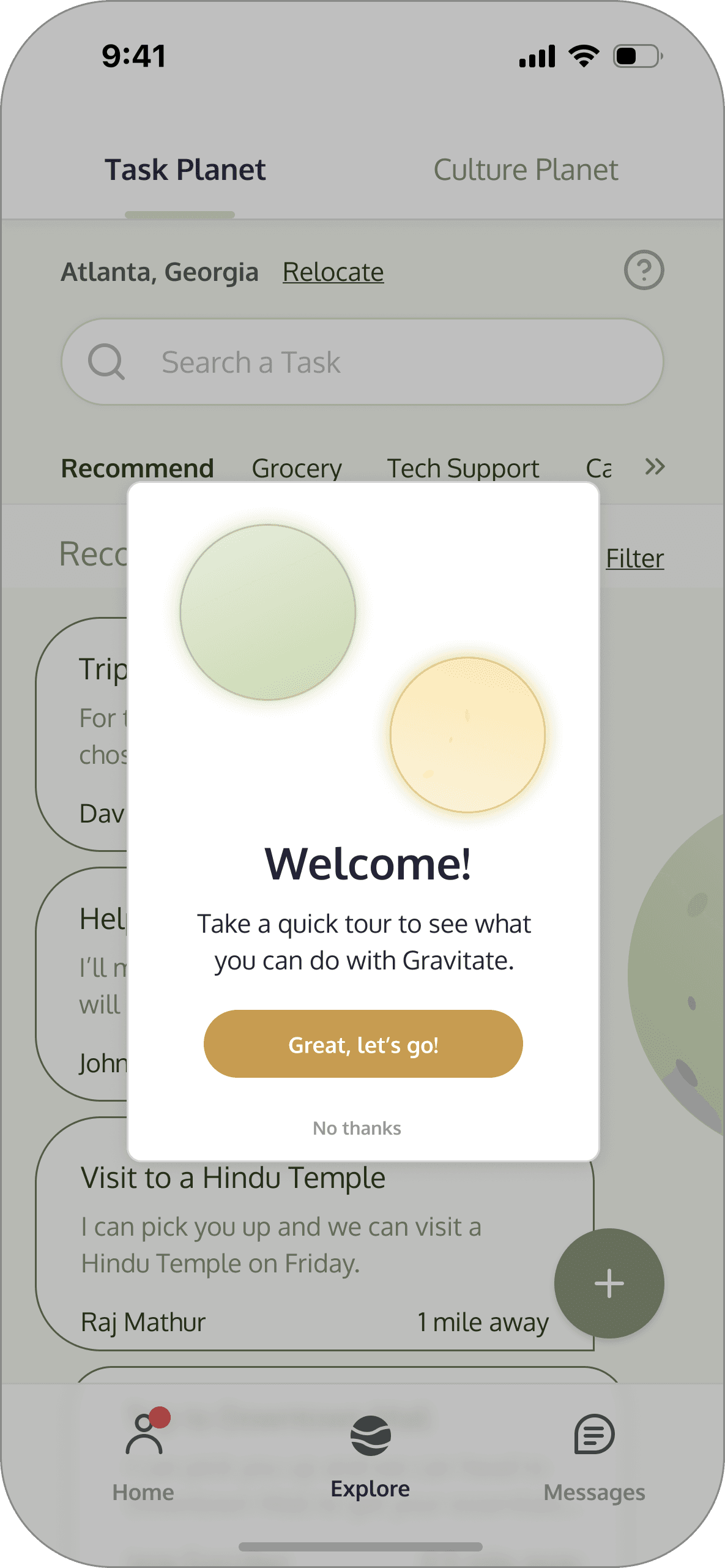
times
Old
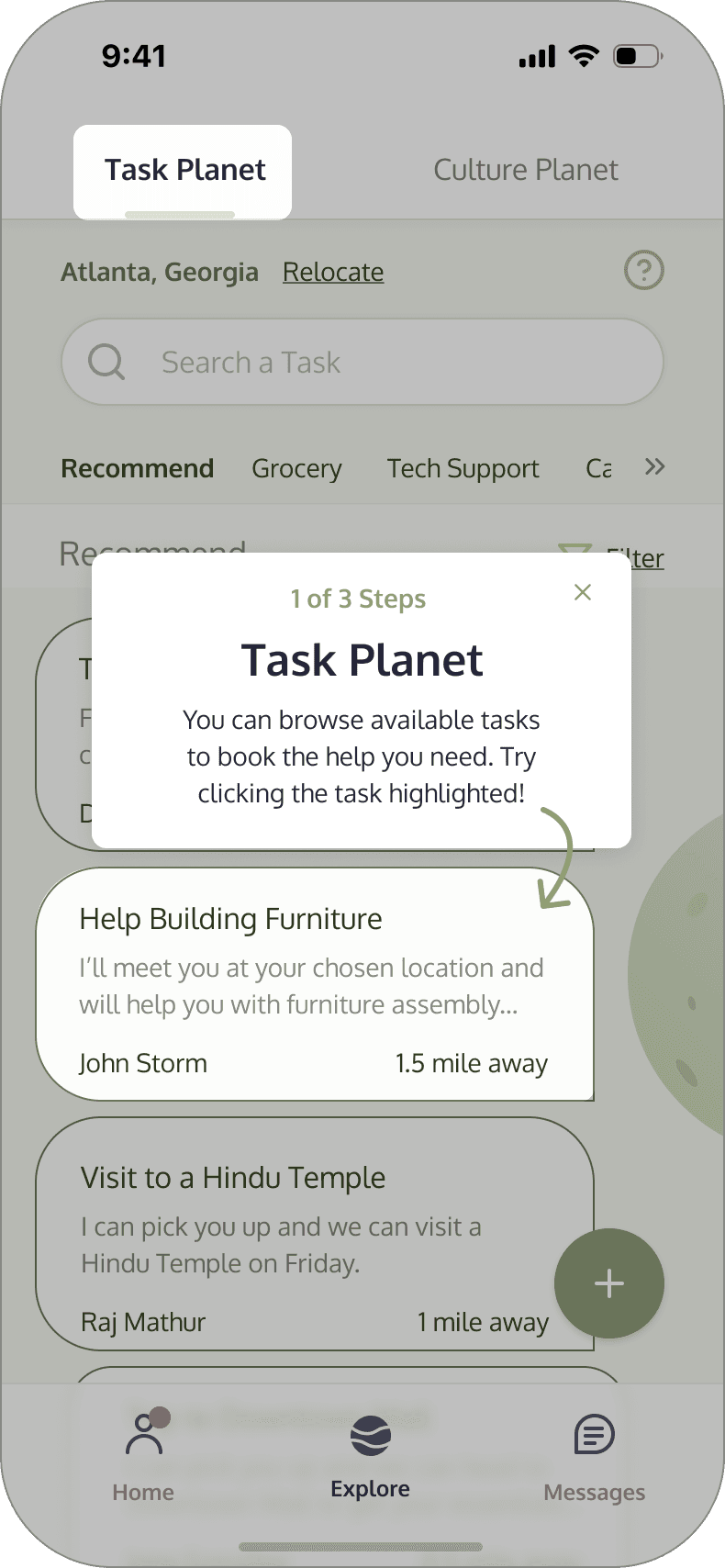
check
New
Onboarding is too long to keep attention
Users lose interest and consider dropping out due to the long onboarding process.
Solution: Employ it only when users encounter a new function
Provide brief introductions on each new page to maintain user engagement and show the steps left.
Users prefer list view for cultural planet
Users find the planet view hard to navigate. Most prefer list view for better usability.
Solution: Make list view the default
Keep planet view as the fun option once users are familiar with the app enough to explore more options
times
Old
Planet View
List View
check
New
List View
Planet View
This is an interactive planet view for browsing culture!
What I learned
Balancing creativity and usability
Initially, our goal was to create a tool that stood out from competitors, offering an interactive and enjoyable experience to attract new users. However, through feedback sessions, we acknowledged the potential trade-off with usability. We've learned to prioritize functional reasons over mere distinctiveness, understanding that deviating from familiar layouts should serve a purpose aligned with user expectations for a more effective and user-friendly design.
Handling different opinions in a team
As someone naturally inclined toward listening, I've actively worked on enhancing my persuasive communication skills, challenging myself to speak up and engage in constructive debates with my teammates. Recognizing the value of expressing my thoughts, I've learned that disagreements are a natural part of collaboration. I appreciate the unwavering support of my teammates, fostering an environment where everyone's input is valued and heard.
Shouldn’t rely on onboarding process
We should assume most users would skip the onboarding, so we need to test how easy our design is without the help of onboarding.

Small deeds, big love, lasting impact!
If you want to know more about me, or if you just want a chat,
do check out the links I’ve left for you here.
Want to get in touch?

